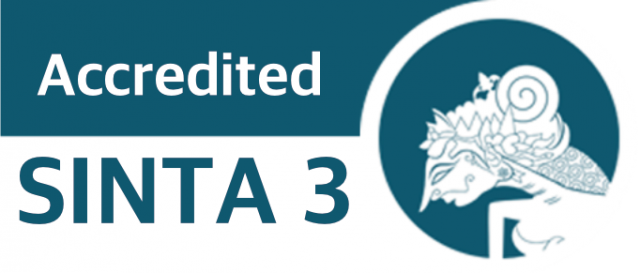Analisis Cerita Rakyat Mandailing œSampuraga: Suatu Kajian Pendekatan Objektif dan Nilai Pendidikan Karakter
DOI:
https://doi.org/10.24114/antro.v5i2.15268Keywords:
Mandailing Folk Story, Character buildingAbstract
His study aims to analyze the values of character education in the folklore of Sampuraga that developed in the Mandailng Natal community. This research uses descriptive analytical method, which is a method that is as clear as possible about the object under study, as well as describing the data as a whole, systematically, and accurately. The analysis is carried out using the theoretical basis used, then analyzed and interpreted in accordance with the study of theory so that the results of the research will be able to describe the problems studied objectively, systematically based on the theories the authors use. Based on the results of this study it can be concluded that first, the principle of an objective approach in the process of applying the elements that make up the literary work itself, such as plot, setting, characterization, language style, and perspective. An objective approach to Sampuraga Folklore. Second, there are four values of character education in the folklore of Sampuraga and Nasondang Ngilong-Ilong, namely the value of religious character education, compassion, hard work, and honesty.References
Andayani, T., Puspitawati, Juliarti (2018), Upaya Menebarkan Nilai-Nilai Kebaikan melalui Pelatihan Mendongeng bagi Siswa/I Sekolah Dasar di Kecamatan Percut Sei Tuan, Anthropos: Jurnal Antropologi Sosial dan Budaya (Journal of Social and Cultural Anthropology), 3 (2): 61-68.
Danandjaja, J. (2007). Folklor Indonesia, Ilmu Gosip, Dongeng, dan lain-lain. Jakarta: Pustaka Utama Grafiti.
Darmadi, H. (2009). Dasar Konsep Pendidikan Moral. Bandung: Alfabeta.
Desi. Y. & Larlen. (2019). Analisis Unsur Instrinsik Cerita Rakyat Sigindo Kuning Dusun Tuo Merangin Jambi. Jurnal FKIP Universitas Jambi.
Gusnetti. S. & Isnanda, R. (2015). Struktur dan Nilai-Nilai Pendidikan dalam Cerita Rakyat Kabupaten Tanah Datar Provinsi Sumatera Barat. Jurnal Gramatika Universitas Bung Hatta. 1 (i2):183-192.
Ibrahim, M. (2009). Konteks Sastra Melayu & Budaya Melayu. Malaysia: Karisma Publications Sdn. Bhd.
Kahar, S. Barus, M.I. & Wijaya, C. (2019). Peran Pesantren dalam Membentuk Karakter Santri. Anthropos: Jurnal Antropologi Sosial dan Budaya (Journal of Social and Cultural Anthropology), 4 (2): 170-178.
Ratna, N.K. (2006). Teori, Metode, dan Teknik Penelitian Sastra. Yogyakarta: Pustaka Pelajar.
Sapirin, Adlan, & Wijaya, C. (2019). Implementasi Mata Pelajaran Akidah Akhlak dalam Pembentukan Karakter Siswa Madrasah Ibtidaiyah Negeri 3 Tapanuli Tengah. Anthropos: Jurnal Antropologi Sosial dan Budaya (Journal of Social and Cultural Anthropology), 4 (2): 211-220
Siregar. S.F., Fuady, Y., Fadli., M. Al-Bukhori, A., Lubis, P.N., Nasution, S.N., Wahyudi, R., Matanari, S., Junaidi, M., Suryani, I,. (2018). Karakter dan Akhlak Pemimpin dalam Perspektif Islam. Journal of Education, Humaniora and Social Sciences (JEHSS). 1 (2): -110-116.
Sundari, F., Ernata S., Nurmi R., dan Sulian E., (2017). Penerapan Program FOS (Folktale Speaking) sebagai Pembentuk Karakter Anak Usia Dini, Jurnal Pendidikan Ilmu-Ilmu Sosial, 9 (1): 102-111.
Syam, J. (2012). Teromba Rokan. Rokan Hulu: Dinas Kebudayaan dan Pariwisata Kabupaten Rokan Hulu.
Syukria & Siregar, N.S.S. (2018). Buku Cerita Si Kancil dan Perilaku Meniru Siswa Taman Kanak-kanak. Gondang: Jurnal Seni dan Budaya, 2 (2): 90-102.
Wiguna, M.Z. & Alimin, A.A. (2018) Analisis Nilai-Nilai Moral dalam Cerita Rakyat Kalimantan Barat. Jurnal Pendidikan Bahasa IKIP PGRI Pontianak. 7 (1):143-158.
Zainuddin, D. dkk. (1987). Sastra Lisan Melayu Riau: Bentuk, Fungsi dan Kedudukannya.Pekanbaru: Depdikbud
Downloads
Published
How to Cite
Issue
Section
License
Copyright (c) 2020 Anthropos: Jurnal Antropologi Sosial dan Budaya (Journal of Social and Cultural Anthropology)

This work is licensed under a Creative Commons Attribution 4.0 International License.

This work is licensed under a Creative Commons Attribution 4.0 International License
Authors who publish with this journal agree to the following terms:
- Authors retain copyright and grant the journal right of first publication with the work simultaneously licensed under Creative Commons Attribution 4.0 International License that allows others to share the work with an acknowledgement of the work's authorship and initial publication in this journal.
- Authors are able to enter into separate, additional contractual arrangements for the non-exclusive distribution of the journal's published version of the work (e.g., post it to an institutional repository or publish it in a book), with an acknowledgement of its initial publication in this journal.Penulis.
- Authors are permitted and encouraged to post their work online (e.g., in institutional repositories or on their website) prior to and during the submission process, as it can lead to productive exchanges, as well as earlier and greater citation of published work (Refer to The Effect of Open Access).


